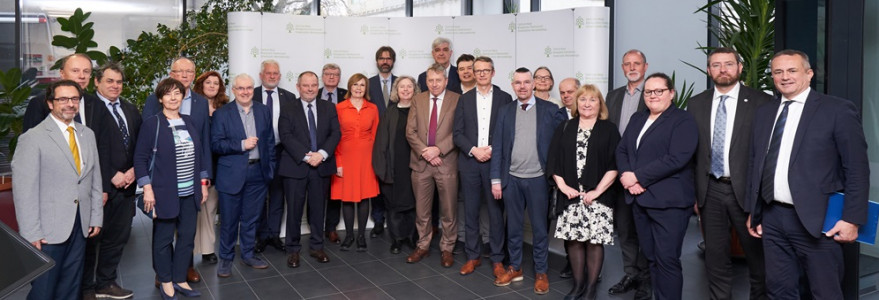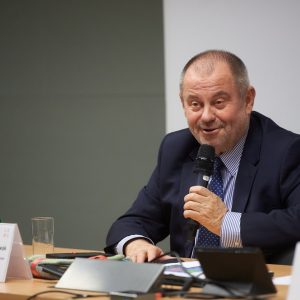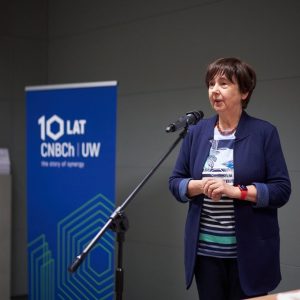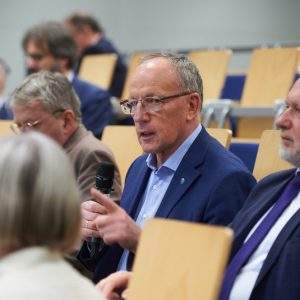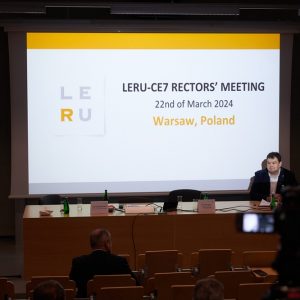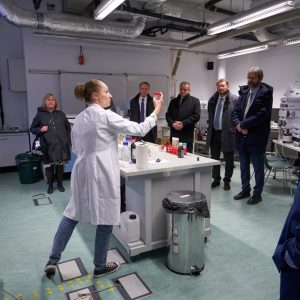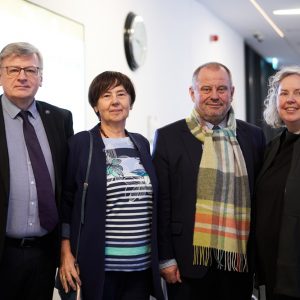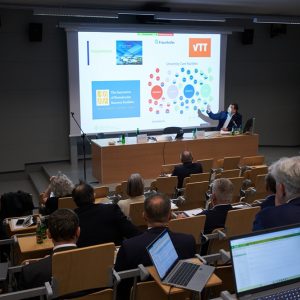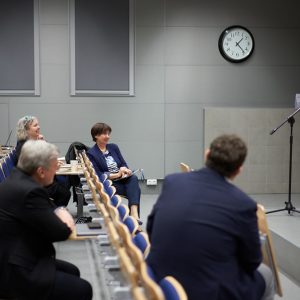On 22nd and 23rd March, the University of Warsaw hosted a meeting of rectors of universities affiliated to the LERU-CE7 network. The discussed topics included the development of research infrastructure and the research security.
The meeting began on 22nd March at the UW’s Biological and Chemical Research Centre (CNBCh). The assembled guests were welcomed by Prof. Alojzy Z. Nowak, Rector of the UW, and Prof. Ewa Bulska, Director of the CNBCh UW.
“The discussion on higher education in Europe is very important. We cooperate with other universities in various consortia, including the 4EU+ Alliance. We have common problems related to, for instance, financial support from governments. However, united, we are more likely to succeed. The activity of a large academic community, when it comes to, for example, jointly applying for grants, is stronger than that of a single university. We want to further develop our cooperation within CE7 and strengthen our partnership with LERU. This also refers to inviting students and employees of other universities to come to the UW,” the UW Rector said.
On the first day, the discussions focused on the development and management of research infrastructure using the example of the partner universities. The perspective of the University of Warsaw was presented by Konrad Zawadzki, deputy director of the UW’s Biological and Chemical Research Centre, and Prof. Artur Obłuski, director of the Polish Centre of Mediterranean Archaeology.
In his speech, Konrad Zawadzki presented the history of the Ochota Campus, discussed the models of research centres existing at the UW and referred to the issue of maintaining and sharing research infrastructure on the example of the CNBCh. He also drew attention to the positive role of research centres in motivating scientists to cooperate with business. Prof. Obłuski presented an innovative approach to research infrastructure in the humanities and social sciences.
The second part of the meeting on research security and changes in international risk and evaluation (RI&E) policy took place on 23rd March at the UW campus in Krakowskie Przedmieście. The issues were discussed by Prof. Kurt Deketelaere from the LERU Secretary-General and Mirko van Muijen from the European Commission’s Directorate-General for Research and Innovation.
The event was also attended by Prof. Andrzej Szeptycki, Undersecretary of State at the Ministry of Science and Higher Education, Prof. Zygmunt Lalak, the UW Vice-Rector for Research, Prof. Sambor Grucza, the UW Vice-Rector for Cooperation and Human Resources, and representatives of the UW’s Centre of New Technologies and the Office for International Research and Liaison.
The League of European Research Universities (LERU) is a network of twenty-four leading research universities from twelve European countries. LERU member universities emphasise humanisation in education, research-supported knowledge as a basis for innovation in society, the broad promotion of research seen as an opportunity to modify activities in the context of emerging opportunities and problem situations.
In 2016, the LERU network started close cooperation with seven leading Central European Universities (CE7), among which are: University of Warsaw, University of Belgrade (Serbia), University of Ljubljana (Slovenia), University of Zagreb (Croatia), University of Tartu (Estonia), Charles University (Czech Republic) and Eötvös Loránd University (Hungary).
The networked universities aim to improve the conditions for study and research across Europe, to strengthen scientific and teaching cooperation and to raise awareness of the role of research universities to national governments and politicians.



